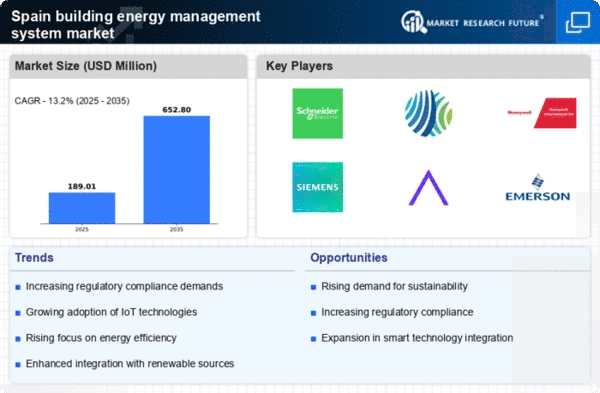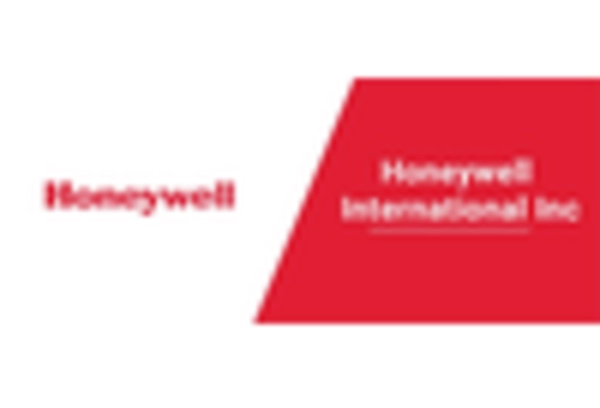Rising Energy Costs
The escalating energy costs in Spain are driving the demand for building energy-management-systems. As energy prices continue to rise, businesses and property owners are increasingly seeking solutions to optimize energy consumption. The building energy-management-system market is expected to benefit from this trend. These systems provide tools for monitoring and controlling energy use, potentially leading to savings of up to 30%. This financial incentive is particularly relevant in Spain, where energy costs have surged by approximately 15% over the past year. Consequently, the need for efficient energy management solutions is becoming more pronounced, positioning the building energy-management-system market as a critical component in the quest for cost-effective energy solutions.
Government Incentives for Energy Efficiency
The Spanish government has implemented various incentives aimed at promoting energy efficiency, which significantly impacts the building energy-management-system market. These incentives include tax breaks, grants, and subsidies for businesses that invest in energy-efficient technologies. For instance, the government has allocated over €500 million for energy efficiency projects in the last fiscal year. Such financial support encourages the adoption of building energy-management-systems, as organizations can offset initial investment costs. This trend not only fosters a more sustainable environment but also enhances the competitiveness of businesses in Spain, thereby driving growth in the building energy-management-system market.
Increased Awareness of Environmental Impact
There is a growing awareness among Spanish consumers and businesses regarding the environmental impact of energy consumption. This heightened consciousness is influencing the building energy-management-system market, as stakeholders seek to reduce their carbon footprints. The market is likely to see an increase in demand for systems that facilitate energy monitoring and reporting, enabling users to track their environmental performance. According to recent studies, approximately 70% of Spanish companies are now prioritizing sustainability in their operations. This shift towards environmentally responsible practices is expected to propel the adoption of building energy-management-systems, as they align with corporate social responsibility goals.
Urbanization and Infrastructure Development
The rapid urbanization and infrastructure growth in Spain are contributing to the expansion of the building energy-management-system market. As cities grow, the demand for efficient energy management solutions becomes more critical. The construction of new commercial and residential buildings presents an opportunity for the integration of advanced energy management systems. It is estimated that urban areas in Spain will see a population increase of 10% by 2030, necessitating the implementation of energy-efficient technologies. This trend is likely to drive the building energy-management-system market, as stakeholders recognize the importance of sustainable energy practices in urban planning and development.
Technological Advancements in Energy Management
Technological advancements are playing a pivotal role in shaping the building energy-management-system market in Spain. Innovations such as artificial intelligence, machine learning, and IoT integration are enhancing the capabilities of energy management systems. These technologies allow for real-time data analysis and predictive maintenance, which can lead to more efficient energy use. The market is projected to grow by 20% per year as businesses increasingly adopt these advanced solutions. Furthermore, the integration of smart technologies into building energy-management-systems is likely to improve operational efficiency and reduce energy waste, making them an attractive option for property owners in Spain.
















